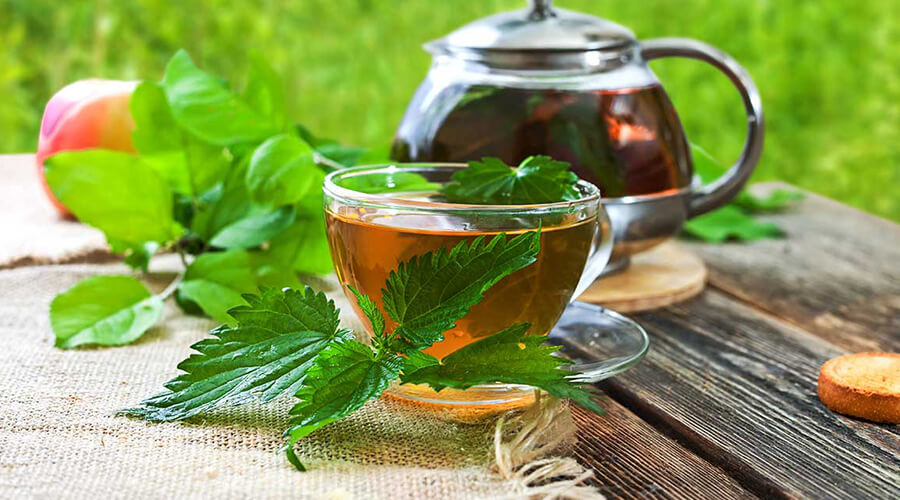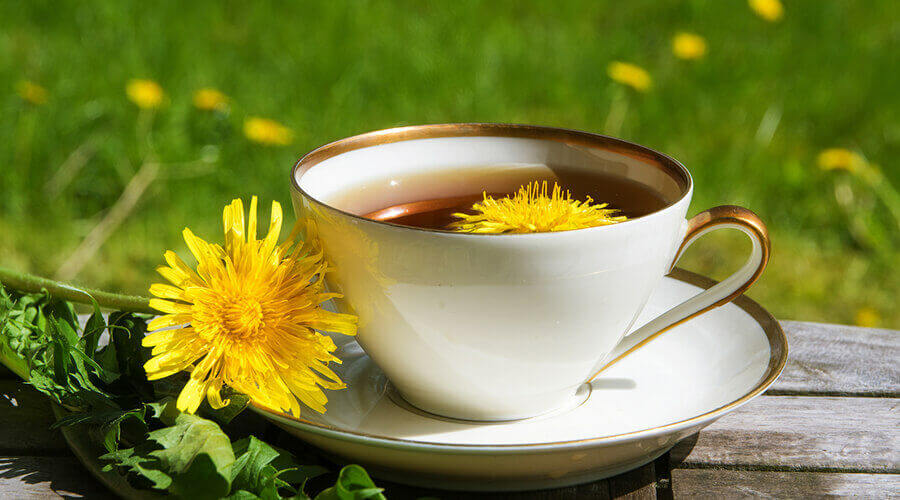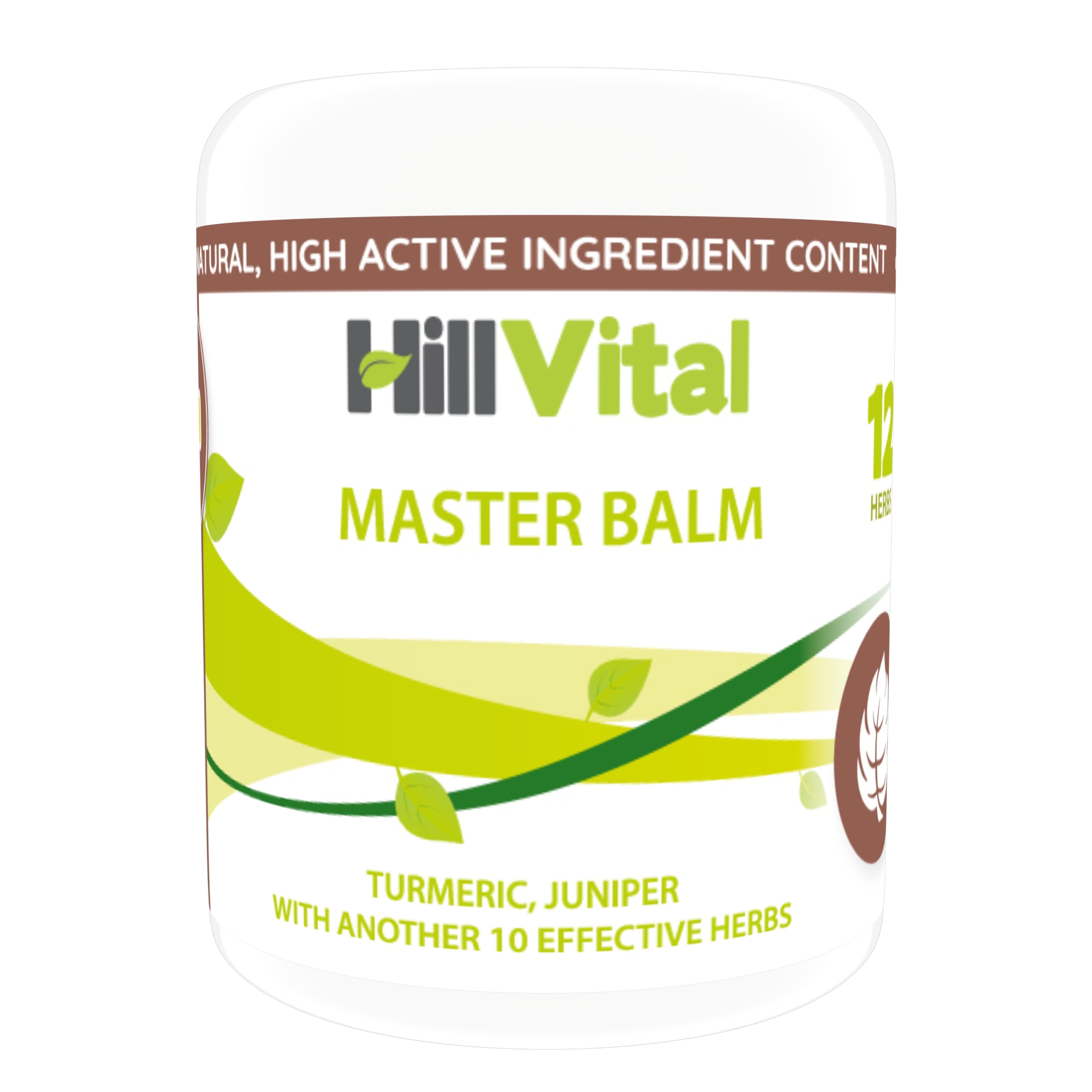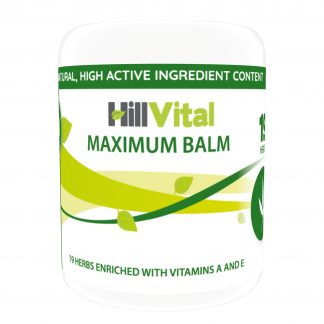
Not only can water retention be a health problem, it can also prevent weight loss. Stagnant fluid circulates in the body and can cause bloating and swelling of the limbs.
Teas that are diuretics are drinks made from plant extracts that are traditionally used as diuretics.
The effect of diuretic teas is to help get this stagnant water out of the body. A diuretic tea can also do a lot for you when you’re losing weight. It’s definitely worth trying one during a diet, as you may experience unexpected positive results.
There are several natural diuretic teas available, of which the 7 most effective diuretic herbs are presented here, which can of course be used to make herbal teas. Most of the time the herbal tea diuretics effect is coming from potassium, which helps stimulate kidney function.
Let’s see what are the 7 most powerful diuretic teas available.
Nettle tea
This is one of the best known diuretic herbal teas. Nowadays, nettle is mainly known for its diuretic properties, so nettle tea is considered a diuretic herbal tea. Diuretics also increase the amount of urine produced by the kidneys. Nettle is one of the best blood purifying, detoxifying and detoxifying herbs. It stimulates kidney function and reduces blood levels of uric acid, making it an effective treatment for gout, arthritis and rheumatic diseases. The old and well-known method of tapping the painful rheumatic area with nettle is still used today. It can also be used for fever relief, anaemia and rashes.
For those who are prone to kidney and bladder stones, nettle tea is recommended on a regular basis.
For urinary tract cleansing, 2 cups of tea between meals for 10 days is recommended.
Lemongrass tea
Lemongrass is known primarily for its nervine and sedative effects. It can be used for sleep disorders, incipient depression, to calm the nerves and for nervous heart problems. It stimulates liver function and has digestive and anti-puffiness properties. However, we must not forget that lemongrass also has a diuretic effect.
The diuretic effect of lemongrass tea can be achieved by drinking a cup of tea in the morning on an empty stomach.
Hibiscus tea
In addition to its antihypertensive properties, hibiscus has a number of beneficial properties. It helps to reduce stress, cleanses the kidneys and liver, improves appetite, has anti-infective properties, is good for the heart and nerves, and has diuretic properties.
It can also help with urinary problems and diuretics, as well as constipation.
To prepare, boil 5 dl of water and add 2 tablespoons of dried hibiscus flowers. When it has dissolved, let it cool a little.
Dandelion tea
Dandelion is most commonly used to help liver function and to increase bile production. It also regulates bowel function, relieves constipation, and has tonic, appetite stimulating, digestive and diuretic effects.
To prepare it, boil 2 teaspoons of dandelion in 3 dl of water, boil for 1-2 minutes and strain after 10 minutes. Drink 2 cups a day for 6 weeks as a course, then take a break of about 1-2 weeks.

Peppermint tea
Pepperment tea is one of the strongest natural diuretics. The use of peppermint can be traced back to ancient Rome, where it was popular for its digestive and diuretic properties. As it has a beneficial effect on the bile and liver and relieves spasms of the smooth muscles, it was often consumed after large feasts and dinners to relieve pain and bloating.
Preparation is simple. Add two teaspoons of peppermint leaves to two decilitres of boiling water and leave to stand for about 5 minutes. Once it has cooled a little, you can strain it and season to taste.
Birch leaf tea
Birch leaf is an excellent kidney regulator, diuretic and has anti-kidney and anti-kidney stone formation effects. It helps to cure cystitis and urinary tract infections without irritating the kidneys. Other beneficial effects include blood purification and cholesterol lowering. It can also be used for rheumatic and gouty arthritis due to its flavonoid content.
For bacterial infections of the urinary tract, it is recommended to take one cup on an empty stomach. For prevention, 1-2 cups per week are recommended.
Goldenseal tea
Goldenseal tea has beneficial properties that help to constrict and disinfect the urinary tract and bladder. This effect is particularly beneficial in the case of urinary tract infections. It helps to maintain the kidneys.
Consumption is recommended as a course of treatment, one cup a day for 3 weeks, then twice a week.
As it is difficult to determine exactly which is the strongest diuretic tea, this is a question that most often needs to be answered by oneself.
We are all different, so teas can work differently. The deciding factor may be either taste or effect. Whichever one you choose, don’t be alarmed if you lose a few pounds, as almost all diuretic teas also help you lose weight.
How to use diuretic tea for swelling of the feet?
Leg swelling (oedema) is excessive swelling due to fluid accumulation in the body. The use of diuretic teas to treat leg swelling can usually help to increase the amount of fluid leaving the body by increasing urination.
If the doctor recommends the use of diuretic teas, it is recommended that fluid intake is also increased during the course of the treatment so that urination does not cause dehydration. Before drinking the teas, it is usually recommended to check the ingredients of the teas to make sure that they do not contain any ingredients that are contraindicated in certain cases.
Can I take diuretic tea during pregnancy?
Drinking diuretic teas during pregnancy is generally not recommended because some of the ingredients in these teas can reduce the water and electrolyte balance in the body, which can pose a risk during pregnancy.
Other natural diuretics worth mentioning are:
-Calendula (Calendula officinalis)
-Watercress (Equisetum arvense)
-Hyssop (Equisetum hyemale)
-Liquid shade (Lythrum salicaria)
-Yarrow (Taraxacum officinale)
-Caraway (Prunus cerasus)
-Curly sea buckthorn (Hippophae rhamnoides)
-Bilberries (Vaccinium myrtillus)
-Celery (Apium graveolens)
-Nettle (Urtica dioica)
-Thyme (Thymus vulgaris)
-Parsley (Petroselinum crispum)
Related products
-
 Herbal Master Balm$44.99
Herbal Master Balm$44.99 -
 Maximum Balm$49.99
Maximum Balm$49.99 -
 Black Comfrey Balm$40.99
Black Comfrey Balm$40.99 -
 Varikoflex Balm$49.99
Varikoflex Balm$49.99


